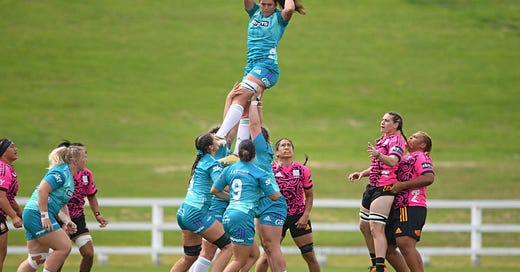Rise up! Rugby takes a giant leap forward
PLUS: Exciting Substack news, a story you should all read, The BYC and Clarke Gayford's shameless role in the All Black debacle.
For a while there I didn’t think we were going to get to this point, but it really does look like Super Rugby Aupiki will finally kick off tonight, with Chiefs Manawa playing Matatu in Hamilton.
To understand why Super Rugby Aupiki is important from a purely high-performance perspective, and why it is being rushed into production this year de…
Keep reading with a 7-day free trial
Subscribe to The Bounce to keep reading this post and get 7 days of free access to the full post archives.




